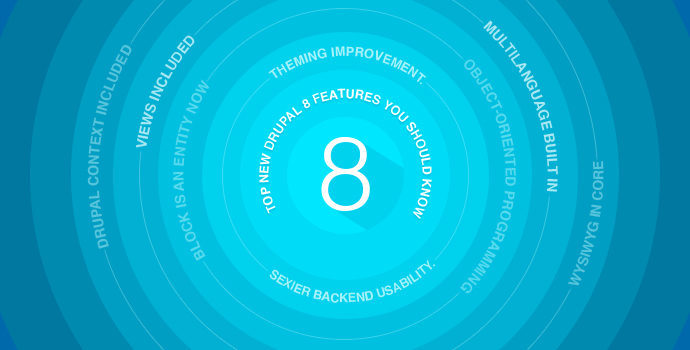Having worked with Drupal 8 in a production setting at one of the top development agencies for the last 15 months, I feel that I can responsibly say that Drupal 8 is ready for prime time. In fact, given all of the great improvements that the platform has to offer, it’s hard to think of an scenario where I would recommend Drupal 7 to a client. These include a standardized Symfony2 framework, a twig templating system, partial page caching, configuration management, layouts, and much more.
To learn more about Drupal 8’s new features, I spent a day recently at DrupalCon Baltimore, an experience that has heightened my excitement about Drupal and the future of the platform. Here are the takeaways that we got from the conference:
- Focus on Lowering the Barriers of Entry
- Core initiatives targeted at improving content authoring
- Revamped Release Cycles
- Drupal maturing in large enterprise
Opening the Flood Gates
The Driesnote was amazing as always. This one was more exciting than usual as there was a strong emphasis on the community and the shift for Drupal to become more user-friendly and lowering the barriers of entry. From a technical standpoint, the standardization on the Symfony2 framework and the addition of the twig templating system make working with Drupal more attractive to PHP developers, opening the platform up to a much wider developer market. From the content side, Dries highlighted the work being lead by Keith Jay to provide a better out-of-the-box experience to all users.
Content is King
In an ever changing market, it is important to stay ahead of the curve and adapt your organization to meet the needs of your client base. We validated a big shift that we are seeing in the market where the decision-maker is no longer the IT team – It has shifted to the marketing team. It is great to see Drupal follow this trend with the strong focus on the new core initiatives around UX, such as layouts and in-place editing. Dries also highlighted Cristina Chumillas for her work in improving the UX of several core pages.

Maintenance made easy
Another exciting announcement was around the revamp of the Drupal release cycles to make core upgrades for both minor and major versions of Drupal easier. The new 6-month cycles have been running great, and I for one am excited to see it. In this new model, functionality will slowly be deprecated (instead of removed) throughout the minor release versions as new functionality is added. This will give module developers an extended period of time to upgrade. Major releases will go one step further and remove the set of deprecated functionality to start the codebase off on a clean slate.
Climbing the Corporate Ladder
Drupal continues to gain traction in the large enterprise space with organizations and marketing teams looking to spend more of their budgets on content and campaigns rather than recurring subscription fees. This can be validated by the uptick in features and functionality that the community is providing for Drupal 8. As the market changes, so should the technology. The greatest thing about Drupal and the community around it is that we are the ones choosing the direction of the platform. We have thousands, or even hundreds of thousands of people validating this platform in the market and pushing the direction of the platform forward.
